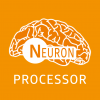Podcast (brain food): Play in new window | Download (21.3MB) | Embed
Subscribe: Apple Podcasts | Android | Blubrry | RSS
About this episode
We had to postpone our planned interview with the experiences of a start-up with the NEURONprocessor. Therefore, following our previous episode, we continued to talk about the topic of mastering crisis situations. This time, however, with a focus on:
OUT OF THE CRISIS & INTO YOUR CALLING:
Overcome difficulties & align with your calling

The contents of the program
Concept developments are on the agenda in this program
We had already started to talk about the development of concepts of life in the previous broadcasts - and how important it is to find your goals, to know obstacles and how to overcome them.
In business, however, it's a different ball game.
Two concrete experiences with concepts in different thematic worlds in projects with companies:
Example #1: Development of TV and broadcasting concepts.
The example of Martina Hautau, who already uses the NEURONprocessor in her business - namely for the development of entire TV and broadcasting concepts. For this purpose I interviewed Martina this time. Here is the slightly shortened text - the original is in audio or video:
Thomas:
"Can you briefly tell us how you approach concept development with NEURONprocessor in the meantime?"
Martina: "So, first of all, my basic idea when I interview my entrepreneurs is that I want to position them as industry leaders in the long term, so that they set a new standard in the market. In order to find out the "how", of course, I used to have a lot of long conversations and work this out through my coaching.
So when I came across your NEURONprocessor, I naturally thought: Well, this could be much easier for me by simply engaging with my client, my company or my entrepreneur in the NEURONprocessor process. Because this allows me to work out exactly the questions I need (how this was done is explained a bit further down):
- Where does the person stand right now?
- What is different in his business?
- Where are simply the things that the media want to hear ...
- ... but also the customers absolutely need to simply dock with this entrepreneur or entrepreneur?
In a recent 30-minute TV documentary developed in this way for a client, we received sensational feedback:
- Her family said, "Finally, we understand what you're doing."
- The marketing agency said: "We can use this film in its entirety. You don't really do 30 minutes in advertising. But with this film, everything is so clear afterwards that it's guaranteed to attract the right customers." And that is also the case in the meantime.
- She had contacts on social media who said, "We've known each other for a long time, but now we really need to talk."
- One client who saw the film and had already booked said, "If I hadn't booked now, I would have booked with them now."
The results are a blast - and that's a precision landing, I think. Because when we get feedback like this from all areas that says exactly that they understand her and everything is coherent, it means that she now has a documentary that she can really use for the next few years - especially since we're also filming in a very timeless way. The perfect tool for her commercials for her self-promotion.
Thomas:
In other words, you followed the basic idea that we have in our IDEENlabor and IDEENcampus. In principle, you created a questionnaire in the NEURONprocessor that asks what we need to know about this show, about marketing, social media, wording, and so on. And then you also involved the customer directly, so that she herself was quickly trained (onboarding) and simply worked on the questions.
At this point we have to explain that the NEURONprocessor brings one into the ideal mental state for idea development, creativity and perception, so that the result is this pinpoint information that Martina has just described.
Martina:
So, the right questions are very central. We want to be in the media, we want PR work - every entrepreneur knows that. But if I don't know what the PR sectors want to hear - whether it's online media, print or radio - then I have a hard time. Then I actually just put up my advertising.
But here a process is created - exactly as you say - and I simply included the customer in this process. The exciting thing was, I'm still working with a neutral third party who doesn't know her (my customer) and also doesn't know any details about the project. This way I get even more far-reaching and in-depth information. Through this, my client was able to make a small - but essential - fine-tuning in her business, for example.
Thomas:
Now, of course, you have to clarify again what a "neutral" is. In our case, we already have a pool of idea developers in the NEURONprocessor who are already trained and certified. That means, what Martina did, is: she simply booked one of our idea developers for her project, who was not familiar with TV and media at all and did not know anything about the customer in question. This person was then initially briefed on the project - according to the motto: We want to develop the optimal TV format for customer XY - here are the questions. In the run-up to the project, it was then clarified whether there were any queries regarding understanding in order to carry out precisely this mission - as we call it. And then this idea developer, in a period of 60 to 90 minutes, wherever he was in the world, at a time that suited him, did this mission in a calm and relaxed manner. Of course before the project deadline ;-)
In the NEURONprocessor all developed missions - in your case from you, from your customer and from the neutral idea developer - were then displayed and evaluated together for the analysis - and implemented directly afterwards.
Martina:
Exactly, based on the project results, I then directly wrote the script for the film - and it also contained a lot of immediately usable information for my customer:
- What are promotional statements she can use on social media!
- How can she build her posts!
- What is all about the film!
- How to make the media aware of this!
So, it's all in there - and that's a concept for me where I say: when I do planning for customers and businesses, a NEURONprocessor result is something from storytelling that goes much deeper: namely, something that gives me a concrete roadmap for my business.
Example #2: Start-up concept development - part 1
Martina:
But I also know that new and already established start-ups need a roadmap for their business - and there you have more experience, Tom. Because there are often maybe technical concept questions, questions about set-up, growth, and so on. What are the questions overall?
Thomas: It's really about the whole spectrum. Let's take two technical examples, for example, because you just mentioned the topic. A start-up from Austria that also produces for Formula 1 had a very specific component problem. It kept coming apart on the test bench. We were able to tell them exactly where the fault was and what needed to be done to solve the problem, which worked. The second example is a start-up for designer watches, where there was a very trivial assembly problem, where we were able to develop very important solutions.
In general - and we have noticed this because we also went through an incubator program at the Founder Institute - there is a very, very great need in the start-up area for precisely the service that the NEURONprocessor can provide. For example, to realize a "business model canvas" that can definitely integrate founders, investors and employees - and simply deliver all the conceptual and strategic data that you need much faster and much more efficiently. We're talking about an enormous amount of time saved by using the NEURONprocessor. Everyone involved works for about an hour to 90 minutes, I have a briefing beforehand and of course I have to think about my task. Let's say that's another two and a half to three hours. And then afterwards I have the evaluation and the analysis, which depends on how many people I worked with on such a project. But what we're talking about here is that we can do a project like this in one to three days - depending on the complexity. We don't have to get people together in one place first, like in design thinking and similar processes, where I end up with a bunch of post-its somewhere on the wall. With us, everything is digital right from the start. That means I can bring the data together very quickly afterwards and work immediately with the first results. This is particularly important for start-ups, so that they can see the points they haven't seen before.
So - time is up again - eleven minutes! We'll just continue next week at this point. Until then!

https://www.neuronprocessor.net/

https://neuronprocessing.com/product/strategie-zur-krisenbewaeltigung/
Outlook for the next show
Next week we will talk about concepts and solutions for start-ups - and if there is still time, about further exciting applications of the NEURONprocessor and neural perception in general.
CURRENT | Webinar to develop your / your concepts: We guide you step by step to develop your required concepts and solutions - or those of your company, with the NEURONprocessor:https://calendly.com/neuronprocessing/neuronprocessor-webinar
Have fun listening & watching!
What are your thoughts on the subject?
- Write us a comment directly here
- Write to us by Mail or Twitter
- Share this episode at Twitter or Facebook
Gladly share
- Click to share on Twitter (Opens in new window)
- Click to share on Facebook (Opens in new window)
- Click to email a link to a friend (Opens in new window)
- Click to share on WhatsApp (Opens in new window)
- Click to share on Tumblr (Opens in new window)
- Click to share on Pocket (Opens in new window)
- Click to share on Telegram (Opens in new window)










